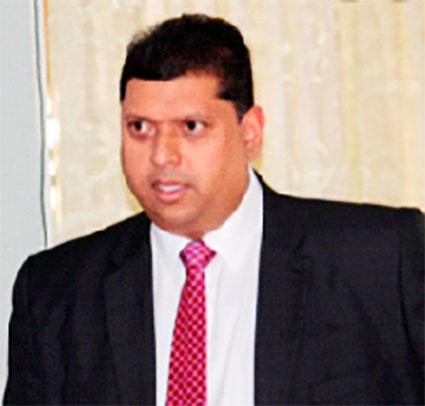Former Energy Minister Kevin Ramnarine says the ongoing political unrest in Venezuela would impact doing business with the country.
Speaking on the Morning Brew yesterday, Ramnarine said that state-owned National Gas Company (NGC) has a 30 year-licence with Venezuela state oil company PDVSA to develop the Dragon gas field with Royal Dutch Shell as the operator, and then the 20-year licence for the Cocuina/Manakin. “The reality is that you see what’s happening in Venezuela. I mean, even if things were to clear up across there, it still would be very difficult. The reports I’m hearing coming out of Venezuela, it’s very difficult to get things done. A lot of things don’t work,” he stressed. Ramnarine noted if he was sitting in government, he would not have put all his eggs in that Venezuelan basket, given what’s happening there.
“Also, we don’t know what’s going to happen with the US presidential election in November. You could have a change in administration.
And although I hear that this government is saying that they’re talking to people in the Republican Party, they haven’t said who from the party they’ve been speaking to. “There’s so much uncertainty and of course, the Venezuelan gas is part of the government’s political narrative. And we are in an election year, as the prime minister pointed out,” he disclosed.
Ramnarine indicated that plan B would be for the country to have its reserves, as there still are significant pockets of gas on Trinidad’s east coast.
“There still is a lot of deepwater, which remains stranded, a stranded resource, 3.5 trillion cubic feet of natural gas to the northeast of Tobago, which we don’t seem to be able to develop for reasons of economics. But there still is a resource base within our borders that we could continue to tap into and develop. And to some extent, the companies are doing that. But it’s not happening at the rate at which would offset the decline in natural gas production,” the former Energy Minister explained. On the topic of bpTT selling four mature gas fields in T&T to Perenco, Ramnarine said it was a business decision in their best interest and what bpTT did was to divest some of its producing fields and its platforms, for which their operating cost is too high.
He highlighted that for a low-cost operator like Perenco, aquiring the five blocks makes economic sense. “I think that as we progress into the 2030s and later, and throughout this decade, we are going to see companies like bpTT doing more of that kind of divesting down to the lower-cost operators like Perenco. Perenco has demonstrated a business model, not only in Trinidad, but all over the world. I see people on Facebook asking who Perenco is, seeming to suggest that Perenco is owned by some kind of dark shadow Trinidadian character. The company is a well-established international French multinational.” He posed the question, “How important is Trinidad to BP in 2024 compared to 2014? “ The footprint in 2024 compared to 2014 is totally different.
Ramnarine identified that the volumes are significantly down by about 40 per cent, while the headcount is down maybe by 30 per cent to 40 per cent. Now the energy company is divesting assets.
“T&T is becoming less strategic to BP and that is something that we should be concerned about, because that company in various incarnations has been the main pillar of our energy sector since 1972, as it was then known as Amoco, and then it became BP. So, it is something that, from that point of view, I would be concerned about. How does BP view Trinidad in the medium to long term?” Ramnarine said.
Speaking on Perenco’s ability, he noted that the company was operating some very mature fields, some fields that have been producing for decades.
“They’ve been producing since January 1972. They’ve demonstrated that they could run those fields and extract economic value from them, pay taxes, pay royalties, and so on, but have a low-cost approach. That is something that bigger companies don’t have, because they tend to do things with more, I wouldn’t say frills, but they tend to have higher costs,” he added.








